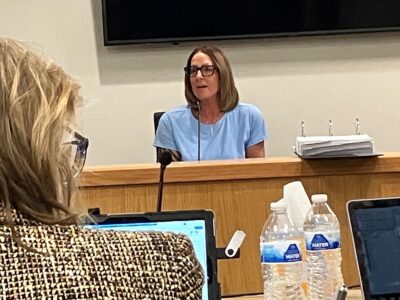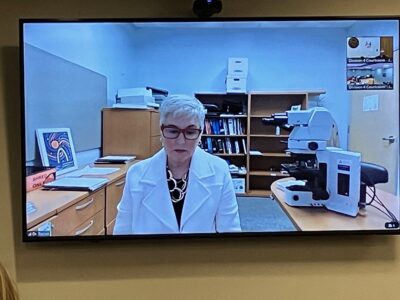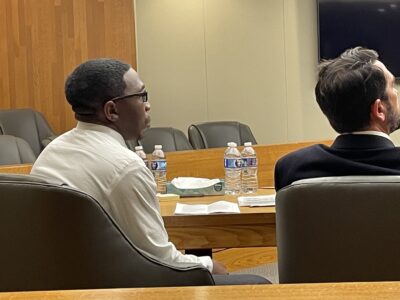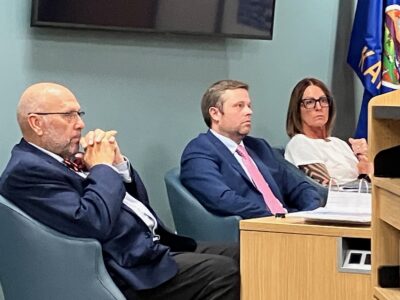Montessori School sex offender sentenced to more than 15 years in prison
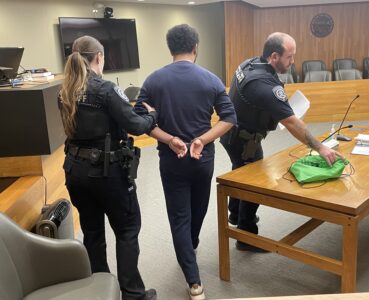
photo by: Sylas May/Journal-World
Mateo Clavel Wills is led away in handcuffs after sentencing on Thursday, Oct. 30, 2025, in Douglas County District Court.
As Mateo Clavel Wills’ sentencing neared in a sex crime case that involved two preschool-age girls, one of the girls told her mom she’d like to be there in court that day.
She was afraid, but she also wanted talk to the judge about Wills.
The young girl’s request, which her mom passed on to Judge Sally Pokorny on Thursday, was for Wills to stay in prison for a long time: “I just wish he would stay in there until I’m a grownup like you and Dad.”
Then, the mother said she asked her daughter how she would feel if Wills got a lighter sentence. The girl cried, she said.
That girl did not come to court with her parents on Thursday, and she wasn’t watching when Pokorny sentenced Wills to 15 1/2 years in prison for one count of aggravated kidnapping and one count of aggravated indecent liberties with a child. But her mom said she was “the bravest human being I know.”
Wills, a former Raintree Montessori School employee, was accused of inappropriately touching that girl and another preschooler during nap time at the school in 2022. He was originally charged with four child sex crime counts, but three of them were dropped when he took a plea agreement in August. The girls were 3 and 4 years old at the time of the offenses.
The sentencing concluded more than three years of what special prosecutor Joshua Ney described as “long, drawn-out proceedings” against Wills. As the Journal-World has reported, the case has gone through numerous delays, motions and appointments of different defense attorneys and special prosecutors — Ney said he was the third.
But Ney said Thursday that much of the legal process in the case hadn’t focused on the girls. Instead, it had focused on Wills, a “purportedly fragile and impressionable” young man, and issues such as the admissibility of Wills’ confession to the crimes.
“What more fragile or impressionable people exist in our community?” Ney asked. “… These two girls were fragile. These two girls were impressionable.”
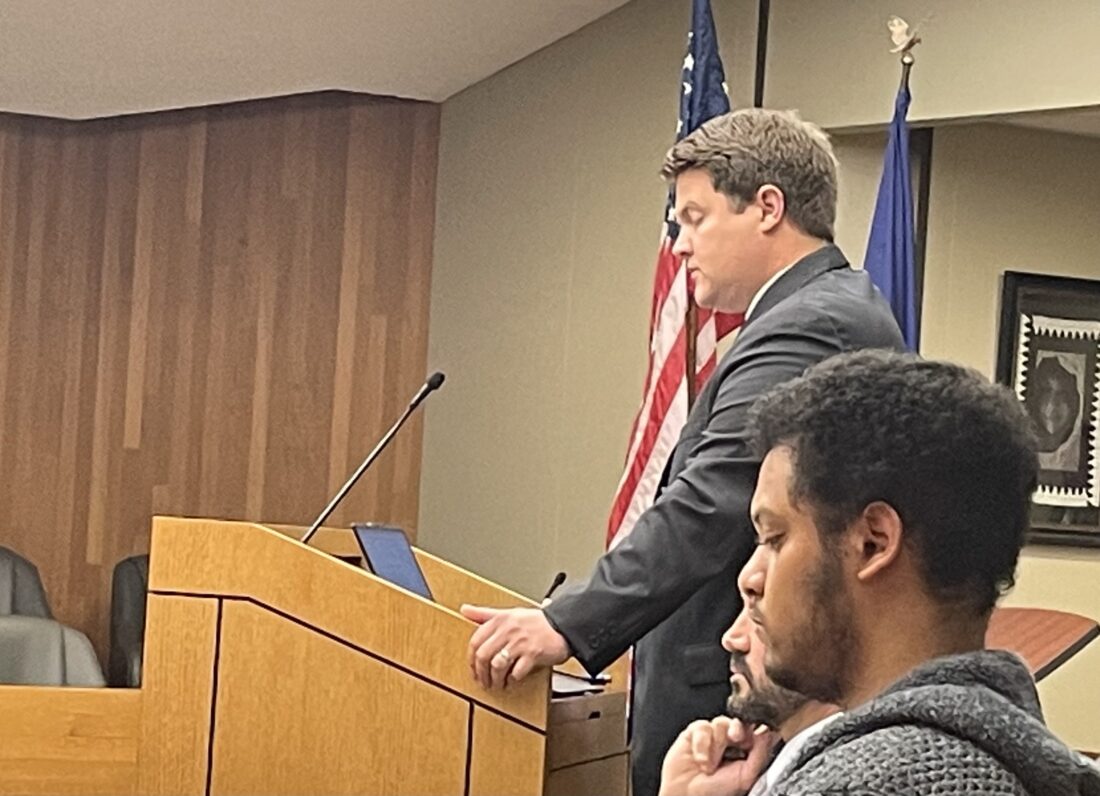
photo by: Sylas May/Journal-World
Special prosecutor Joshua Ney speaks at Mateo Clavel Wills’ sentencing on Thursday, Oct. 30, 2025, in Douglas County District Court.
• • •
A statement from one of the parents of the older girl, now 8, was read aloud in court, and said “the full extent of the harm suffered” still wasn’t clear.
But when dealing with an 8-year-old girl, the statement said, “a lack of incessant commentary speaks volumes.”
For the girl, “the world became a dark and confusing place” when she found out that the bond between her and her “special adult friend” was “a lie, a trick.” It took months of therapy before the girl could accept that it wasn’t her fault.
Wills “clearly knew what he was doing” to the girls, the parent’s statement read. “They existed not as people, but as toys for his own entertainment.”
The statement also expressed the family’s frustration with the slow pace of the proceedings and the defense’s attempts to suppress Wills’ confession to investigators. “Every effort was made to suppress his own words” and to “rewrite the truth,” the statement read.
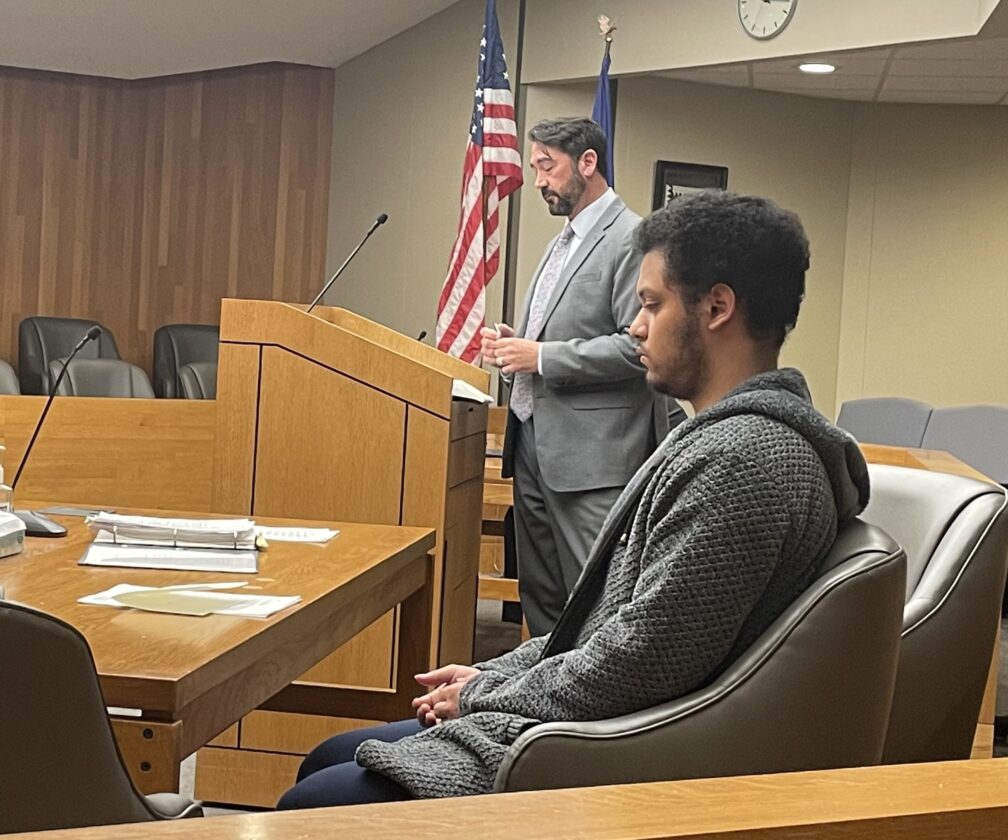
photo by: Sylas May/Journal-World
Hatem Chahine, Mateo Clavel Wills’ attorney, speaks at sentencing on Thursday, Oct. 30, 2025, in Douglas County District Court.
When it was time for Wills’ defense attorney, Hatem Chahine, to speak, he had an emotional response to that accusation. At times sounding on the verge of tears, he said it was his job to advocate for his client and give him “the proper tools,” and that the reason the case slowed down was that process, not anything that Wills had requested.
“This is not a time where we rush people out to the gallows,” Chahine said. He added that in a serious case like this one, “it’s our responsibility to slow it down.”
“I’m the gatekeeper,” Chahine said. “It’s my job.”
Chahine said that Wills had accepted responsibility even after his Miranda rights were read to him.
“He confessed pre-Miranda, he confessed post-Miranda, he pleaded guilty,” Chahine said.
And Wills himself echoed that when he briefly addressed the court. “At this point, I have accepted responsibility by pleading guilty,” he said.
Before concluding, he said, “I apologize to the families and the children I have hurt.”
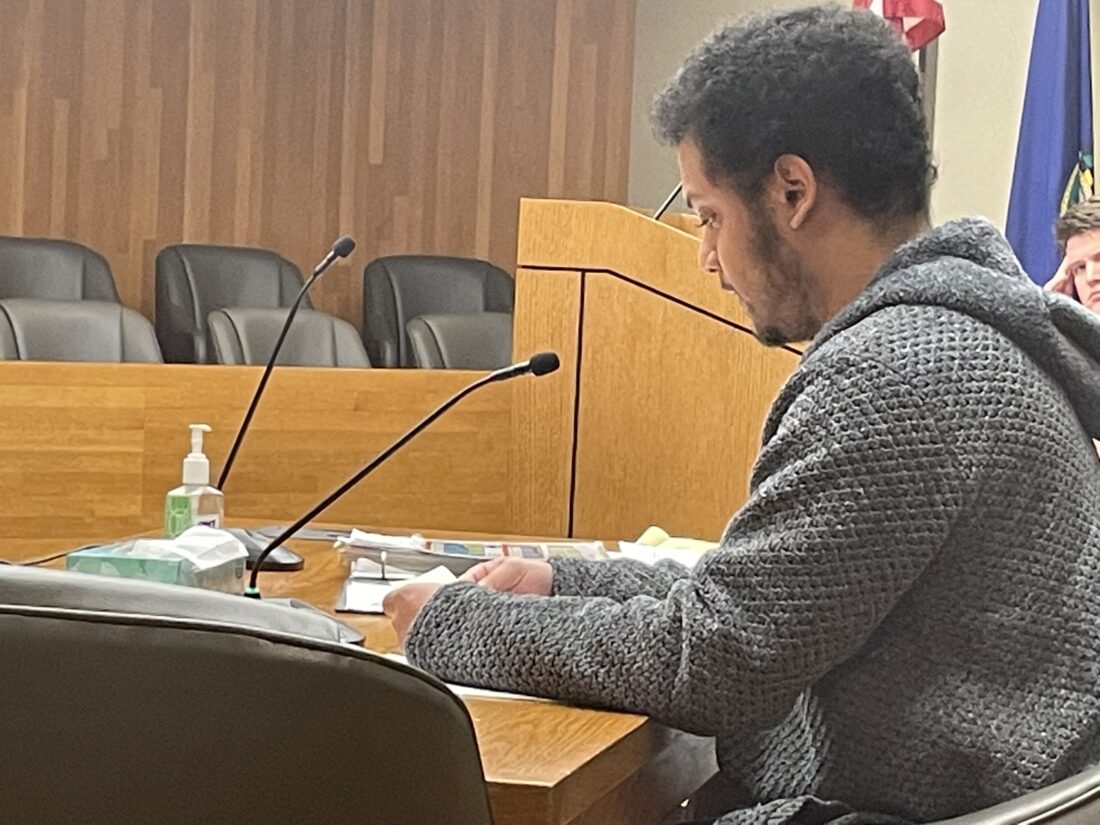
photo by: Sylas May/Journal-World
Mateo Clavel Wills speaks at his sentencing hearing on Thursday, Oct. 30, 2025, in Douglas County District Court.
• • •
Pokorny told the family members that she understood their frustrations. Sometimes in the court system, she said, “it can be mystifying … how things happen, why things happen, why do we operate in this way.”
But she urged them not to cast blame for the delays in the case, such as those caused by the changes in special prosecutors.
“That was no fault of Mr. Wills, it was no fault of the state,” Pokorny said. Each new attorney had a responsibility to take their time and do things the right way, she added.
“Mr. Wills should be punished for his actions … but he should not be punished for the delays,” she said.
The cases were originally charged under Jessica’s Law, which generally carries a life sentence. But the plea agreement crafted by Ney and Chahine dropped the Jessica’s Law component and recommended a sentence of 186 months, or 15.5 years. That was the amount of prison time that Pokorny imposed on Thursday.
During the hearing, Chahine said the parties had tried to craft their recommendation so that, with good-time credit, there was a possibility that Wills could be released after 10 years.
But Pokorny said that, no matter when Wills gets out, the conviction will follow him. He will have to register as a violent offender and a sex offender for life.
“There is no end to this sentence after X number of years,” she said.
• • •
For the parents, no sentence could undo what the girls went through.
The younger girl’s mother said it was possible that Wills could get out of prison by the time the girl was 16. When the crimes occurred, she recalled, her daughter was “so young and so small.”
Sometimes, she said, her daughter would wear multiple pairs of underwear to school. At first, she thought it had something to do with her adjustment to potty training.
Later, she said, she learned the real reason: The girl was trying to make it harder for Wills to touch her.
Years later, her daughter still feels the consequences of Wills’ actions.
“When she hears the name Mateo, it has an effect on her,” the mother said.
One time, she said, the girl insisted that the radio be turned off when a certain song came on. The reason was that “this is the song that played at nap time … every day, and I don’t like it.”
Her father also spoke on Thursday, though he said he hadn’t prepared any “eloquent” statement. This situation didn’t deserve that, he said; it just deserved “disjointed, vitriolic outbursts.”
“This is a surreal thing,” he said.
He mentioned his daughter’s emotional outbursts and said he would never know whether they were normal behavior for a growing child or a lingering effect of Wills’ actions.
“His abuse is a part of who she is now,” he said.
They had wrestled with their own feelings about what had happened to the girl, as well. “I feel like we let her down,” the mother said.
Pokorny, who called the families’ statements “heartbreaking,” sympathized.
“I understand, as a parent, that guilt,” she said.
But the mother also spoke about her daughter’s courage for speaking up and telling authorities the story of what happened. She called her “a hero” and said she likely saved other kids from having to bear the same burden she did.
“If you ask me,” the mother said, “the only thing she should have on her back is a superhero cape.”


